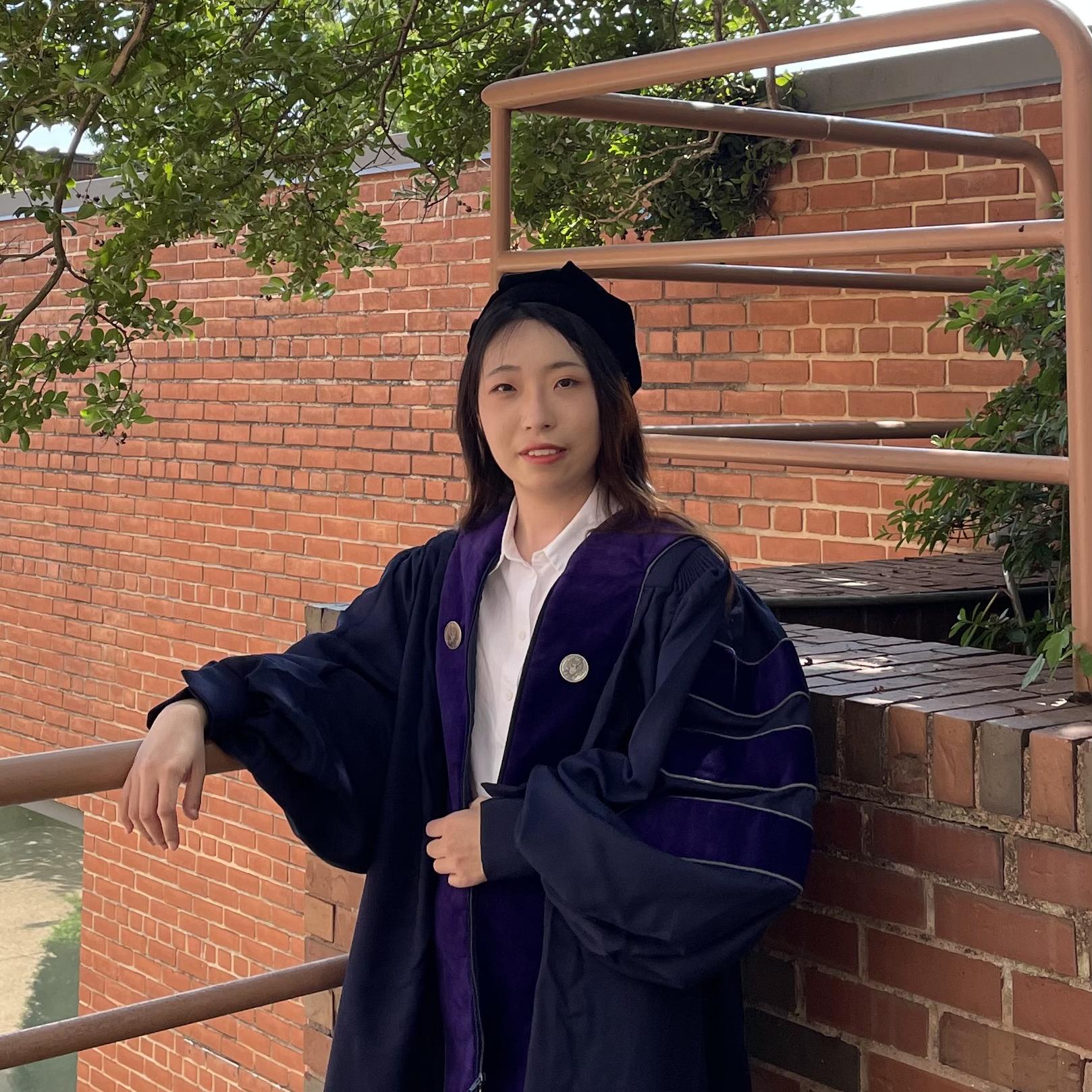Staff profile

Biography
Jianxuan is a PhD candidate at Durham Law School. Before her PhD, she earned a Bachelor of Law from Minzu University of China (2017-2021). Following this, she achieved her Master of Law degree from Georgetown University Law Center (2021-2022), where she received the Georgetown Law Merit-Based Scholarship, graduated with Distinction, and was honored on the Dean’s List. Deepening her passion for Criminology, she subsequently completed an MSc in Criminology and Criminal Justice at the University of Edinburgh (2022-2023), graduating with high Merit. Her Master's dissertation on hate crime against Chinese residents in Edinburgh, with a focus on victimhood experiences, was published in the Journal of Criminal Law.
She was awarded the Modern Law Review Scholarship for both 2024/25 and 2025/26 in support of her PhD research. In 2025/26, she was further honoured with the Mike Redmayne Scholarship, awarded to the best applicant in criminal law and related fields that year. She has also been awarded a fully funded fellowship by the Max Planck Institute for the Study of Crime, Security, and Law (MPI-CSL) in Freiburg, where she has spent a three-month research stay in the summer of 2025.
At the Law School, she is currently a part-time tutor, teaching seminars in Criminal Law for the 2025/26 academic year. She previously taught Introduction to English Law and Legal Methods (ELLM), UK Constitutional Law, and Punishment during 2024/25. She also serves as Deputy Director of the Centre for Criminal Law and Criminal Justice.
Current Research
Jianxuan’s PhD research, supervised by Prof Thom Brooks and Dr Zhiyu Li, focuses on the conceptualisation and implications of penal populism.
Penal populism is a form of populism. It is a social phenomenon in which the general public advocates for harsher punishment of offenders, emphasising the common-sense notion of 'just deserts' and the perspectives of laypeople. This project aims to develop a comprehensive theoretical framework for understanding penal populism: how to define it, what the driving forces are, and how this social phenomenon impacts the criminal justice system. It integrates existing social science terminology, critiques neoliberalism’s influence on public perceptions of crime and punishment, and explores punishment philosophy, among other related areas. The goal is to elevate the study of penal populism to a more theoretical and even philosophical level while ensuring it remains firmly grounded in existing academic knowledge.
Research interests
- Criminal Law, Criminology, and Criminal Justice
Publications
Journal Article
- Invisible Scars: Understanding the Experiences of Hate Crime Among Chinese Residents in EdinburghHu, J. (2025). Invisible Scars: Understanding the Experiences of Hate Crime Among Chinese Residents in Edinburgh. Journal of Criminal Law, 89(3), 132-154. https://doi.org/10.1177/00220183251336406
Presentation
- Why Punishment Sounds So Appealing to People? A Collective Consciousness Perspective on Penal PopulismHu, J. (2025, September 16). Why Punishment Sounds So Appealing to People? A Collective Consciousness Perspective on Penal Populism. Presented at Department of Criminology Lab Meeting, Max Planck Institute for the Study of Crime, Security and Law, Freiburg, Germany.
- ‘Legitimate Vengeance’ Through Punishment, Common-Sense Morality, and In-Group Identity: Why Does a Punitive Approach Appeal to Populists?Hu, J. (2025, September 3 – 2025, September 6). ‘Legitimate Vengeance’ Through Punishment, Common-Sense Morality, and In-Group Identity: Why Does a Punitive Approach Appeal to Populists? Presented at The 25th Annual Conference of the European Society of Criminology, Athens, Greece.
- Penal Populism: Emotional Demands for Power and Punishment as ‘Legitimate Vengeance’Hu, J. (2025, July 1 – 2025, July 4). Penal Populism: Emotional Demands for Power and Punishment as ‘Legitimate Vengeance’. Presented at British Society of Criminology Conference 2025, Portsmouth.
- Punishment as a Public Sentimental Outlet in a Neoliberal Era: Understanding Penal PopulismHu, J. (2025, April 15). Punishment as a Public Sentimental Outlet in a Neoliberal Era: Understanding Penal Populism. Presented at The Socio-Legal Studies Association (SLSA) Annual Conference 2025, Liverpool.
- Penal Populism: A Perspective on Social Shifts and Psychosocial DemandsHu, J. (2024, September 11). Penal Populism: A Perspective on Social Shifts and Psychosocial Demands. Presented at 24th Annual Conference of the European Society of Criminology, Bucharest, Romania.
- The Conceptualisation of Penal Populism: Dispelling MisunderstandingsHu, J. (2024, May 29). The Conceptualisation of Penal Populism: Dispelling Misunderstandings. Presented at 10th Edinburgh Postgraduate Law Conference, Edinburgh.

